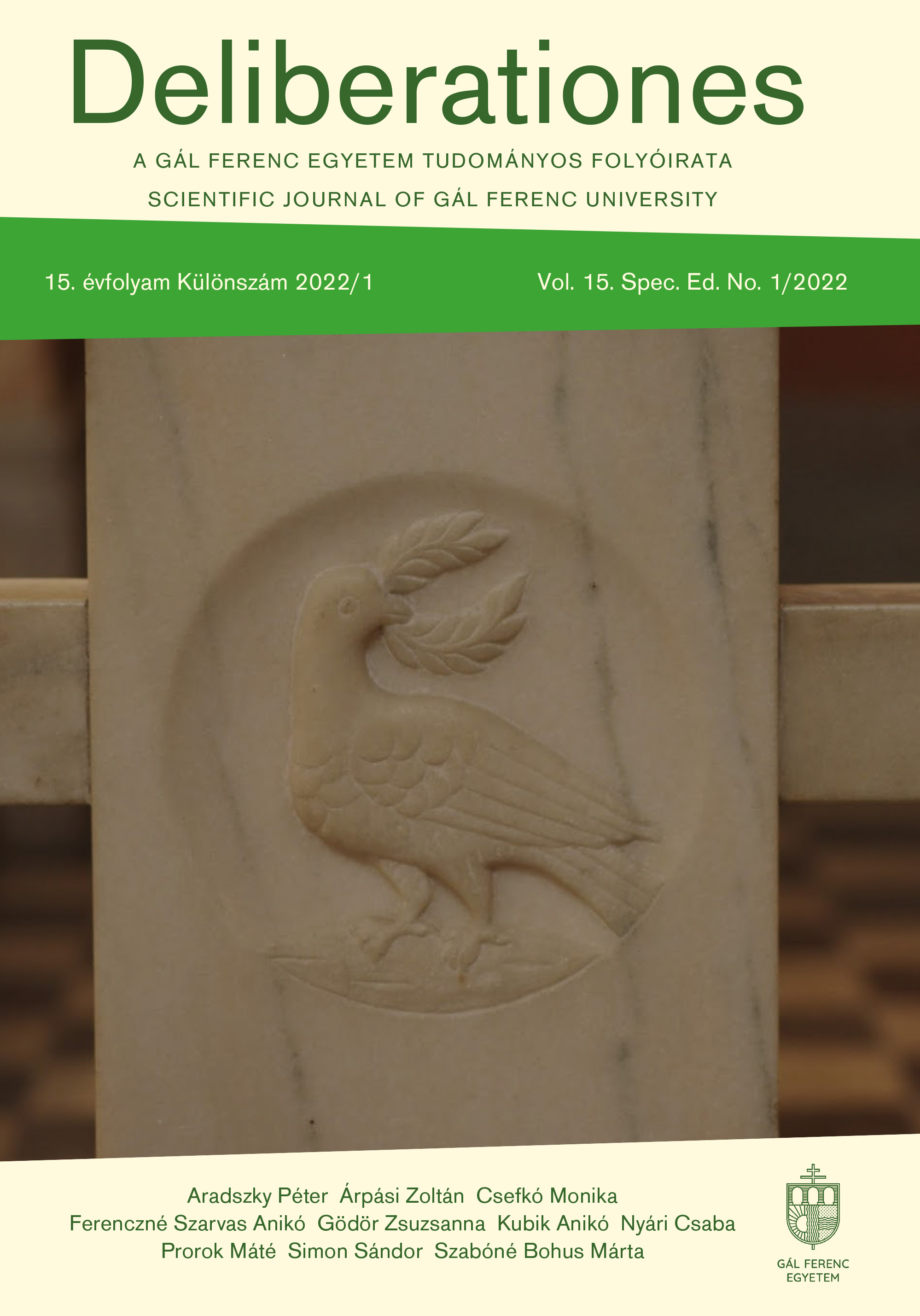Absztrakt
A technikai technológiai innovációk, és a nyomukban meginduló fejlődés, rendszerint különböző formában és mértékben, de mindig is hatással volt a munka világára, a munkaerőpiaci folyamatokra, a munkát végző emberekre.
Ezek a változások jelentős társadalmi hatásokkal járnak. Ezek egy része tartósnak bizonyul, más részük csak rövidtávon jelentkező, ezért átmeneti. A folyamatok egy része egyértelműen pozitív hatásokat eredményez: az új, tudás-intenzív iparágak megjelenése és megerősödése új esélyeket teremt a túlnépesedő társadalmak egyes problémáinak enyhítésére, és az emberi életminőség, az egyéni és társadalmi jóllét növelésére. Ugyanakkor a felgyorsuló technikai–technológiai fejlődés nyomán számtalan új, eddig ismeretlen kihívásnak kell megfelelnünk.
A mostani változások sajátosságát leginkább azok korábban nem tapasztalt gyorsuló üteme, és sebessége jelenti. Mindez megnöveli a gazdasági döntések bizonytalanságát, ami egyértelmű munkapiaci hatásokat is eredményez.
Azt ma már nem vitatják, hogy az információs technológiák elterjedésével meg kellett változnia a munka egyes jellemzőinek, és ennek nyomán a munkaerőhöz kapcsolódó foglalkoztatási formáknak is. A foglalkozási viszonyok folytonossá váló változása elengedhetetlenné tette az eddigi, munkavégzéssel kapcsolatos definíciók és magatartásformák átalakulását.
A munka világának gyökeres átalakulását igényli és kikényszeríti az ipari forradalom küszöbön álló új periódusa. A tanulmány célja annak bemutatása, melyek a munka és a munkaerőpiac jövőbeni dimenziói, továbbá azok meghatározó és befolyásoló tényezői.
Ennek keretében a munka és a munkaerőpiaci viszonyok ezzel kapcsolatos változásával, a változások társadalmi-gazdasági kiváltó okaival és várható következményeivel foglalkozik. Bemutatja a munka átalakuló világának hagyományostól eltérő új meghatározó tendenciáit, a fő érintettek, a munkavállalók és a munkaadók előtt álló kihívásokat.
Hivatkozások
Abonyi, J., & Miszlivetz, F. (2016). Ipar 4.0 megoldások kialakításának feltételrendszere. https://www.researchgate.net/publication/301892028_Ipar_40_megoldasok_kialakitasanak_feltetelrendszere. (Letöltés: 2022.12.03.)
Antalik, I., Karácsony, P., Szeiner, Zs., Gyurián, N., Kovács, Á., Szabó, D., & Poór, J. (2022). A V4 országok aktuális munkaerőpiaci trendjeinek összehasonlítása. In E. Korcsmáros (Ed), 13th International Conference of J. Selye University, Economics Section, Conference Proceedings. https://doi.org/10.36007/4119.2022.09
Berde, É., & Drabancz, Á. (2021). Az idősek változó szerepe a „jövő munkahelyén” – az idősek munkavállalásakor fellépő diszkrimináció elemzése. Új Munkaügyi Szemle, 2(3), 46-58. https://www.metropolitan.hu/upload/00be75ea3a6b70d.
Borbély-Pecze, T. B.(2019). A munka jövője és a munkaügyi szolgálatok Európában. Munkaügyi Szemle, 62(2), 35-47. https://drive.google.com/file/d/1G56dh11c-FRTLmRBldrAPFk1eGbgeqWy/view
European Parlament. (2016). Industry 4.0. European Parlament. https://www.europarl.europa.eu/RegData/etudes/STUD/2016/570007/IPOL_STU(2016)570007_EN.pdf
Ilyés, M. (2018). Munkaerő-piaci kihívások és az új generációk megítélése a magyar vállalatok szemszögéből. Labor market challenges and judging the new generation from the point of view of hungarian enterprises. Közép-Európai Közlemények, 11(3), 139–148. https://ojs.bibl.u-szeged.hu/index.php/vikekkek/article/view/31712
Jenei, Sz., & Módosné Szalai, Sz. (2022). A digitális átalakulás és a koronavírus járvány hatásai a munkaerőpiacon: Rugalmas munkavégzési formák térnyerése Magyarországon. Új Munkaügyi Szemle, 3(2), 2-12. https://www.metropolitan.hu/upload/ e194a72638b91d8544e990d72ef015434802344f.pdf
Juhász, T. (2019). Paradigmaváltás: Hogyan tekintsünk az emberi erőforrásra a negyedik ipari forradalom küszöbén? Munkaügyi Szemle, 62(5), 53-57. https://drive.google.com/file/d/ 1dbYX3KTW6IIuE0lxTJNI7e_HH9Tkq6W3/view
Kurzweil, R. (2013). A szingularitás küszöbén – Amikor az emberiség meghaladja a biológiát. Ad Astra.
Lovászy, L. G. (2020). A jövő munkahelye – a munka jövője. Új Munkaügyi Szemle, 1(2), 2-13. https://www.metropolitan.hu/upload/9605859f20c2488
Mandl, I., Curtarelli, M., Riso, S., Vargas, O., & Gerogiannis, H. (2015). New forms of employment. European Foundation for the Improvement of Living and Working Conditions, New forms of employment. Eurofound. www.europa.eu
Nemeskéri, Gy. (2020). A termelő ember helyzete a munkaerőpiac jelen állapotában. Új Munkaügyi Szemle, 1(4), 23-28. https://www.metropolitan.hu/upload/ 9f49a2853602bafac40084e533008c839c1a3941.pdf
Némethy, K., & Poór, J. (2019). A jövő munkahelye az Ipar 5.0 küszöbén. Munkaügyi Szemle, 62(1), 9-17. http://munkaugyiszemle.hu/jovo-munkahelye-az-ipar-50-kuszoben
Novák, D. (2023). Így lesz a munkavállalók mentális jóllétének támogatásából valós eredmény. HRPWR. https://hrpwr.hu/cikk/igy-lesz-a-munkavallalok-mentalis-jolletenek-tamogatasabol-valos-eredmeny
Orlik, J., Casasbuenas, J., & Helkkula, K. (2018). Digital Frontrunners. Designing inclusive skills policy for the digital age. Digital_Frontrunners_Web. www.nesta.org.uk
Patóné Szűcs B., Kunos, L., Metszősy, G., & Hollósy-Vadász, G. (2021). A munkakörök és kompetenciák pandémia érintettsége. In J. Poór, et al. (Eds.), COVID-19 koronavírus-válság: harmadik fázis. Magyar Agrár- és Élettudományi Egyetem. https://press.mater.uni-mate.hu/32/1/KoronaHR_kutat%C3%A1si%20jelent%C3%A9s%20-%203%20%20f%C3%A1zis_2021.pdf
Pirohov-Tóth, B. (2022). Munkapiaci trendek a koronavírus-járvány idején. Vezetéstudomány, 53(1), 29-43. https://doi.org/10.14267/VEZTUD
Pirohov-Tóth, B., & Kiss, Zs. (2022). A Covid 19 vírus munkavállalói kompetenciákra gyakorolt hatása. Új Munkaügyi Szemle, 3(2), 13-24. https://www.metropolitan.hu/upload/ bbae66217ef4920cf6754f1ee9fecb72b20b2dab.pdf
Pongrácz, F. (2018). Társak vagy vetélytársak? Robotok és emberek a munkaerőpiacon. Munkaügyi Szemle, 61(1) 2-8. https://drive.google.com/file/ d/1WoYp8fMEBLmcu9G0 WeSpZKHQZQdAYtxl/view
PwC Magyarországi Vezérigazgató Felmérés (2023). PWC Magyarország. https://www.pwc.com/hu/hu/ceo.html#a_ma_kihivasai. (Letöltés: 2023. 05. 02.)
